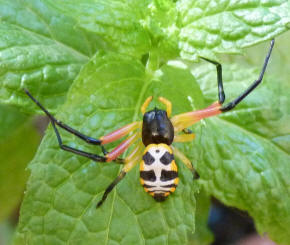One of the classic questions in ecology is, “Why is the world green?” (HSS 1960). That is, what prevents consumers from eating all of the plants? Ecologists initially debated the relative importance of plant quality, predation, and climate as factors that alter the strength of consumer influences on plant production. More recently, broad-scale changes in climate and land-use have caused scientists to question, “Where will the world be green in the future?”
Master’s students interested this topic have the opportunity to participate in two projects:
1) Do trickle down effects of predators depend on climate and land-use? (Collaborators: B. Rall, E. Sohlström)
2) Do thirsty predators prefer juicy prey? Effects of drought, temperature, and nutrients on predator choice (Collaborator: K. McCluney)
Working Environment: This project will be based in Leipzig at The German Centre for Integrative Biodiversity Research (iDiv), a vibrant research consortium with many international visitors and collaborators spread throughout Germany. The consortium offers a unique opportunity to develop an interdisciplinary curriculum and this project offers direct collaboration with members of the core groups Experimental Interaction Ecology, Theory in Biodiversity Research, and the Helmholz Center for Environmental Research-UFZ Global Change Experimental Facility.
If you are interested, please contact Jes Hines (jessica.hines@idiv.de)

